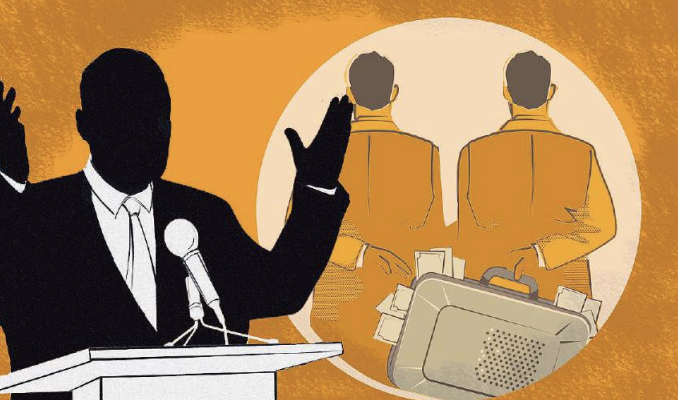

ONYANGO K’ONYANGO
Li Xi, China’s Secretary of the Standing Committee of the Central Commission for Discipline Inspection (CCDI), early this month was in the country for bilateral talks with President William Ruto and the leadership of the ruling United Democratic Alliance.
This visit aimed at enhancing the two countries’ 61-year relationship amid increasing interest from the United States. In the structure of the Communist Party of China, the CCDI is the party’s organ responsible for enforcing discipline and combating corruption.
This contrasts with many jurisdictions, including Kenya, where a government agency handles these issues.
Earlier this year, China improved its score on the Corruption Perceptions Index compiled by Transparency International, rising six points to 45, while the US score declined to 69.
This suggests that the CCDI’s measures are yielding results. The Sino-Kenyan partnership is marked by significant infrastructure projects like the Standard Gauge Railway and the Nairobi Expressway. However, as UDA seeks to draw inspiration from the CPC to strengthen its political influence, one crucial lesson is the need for decisive action against corruption.
The visit comes at a time when the Kenya Kwanza administration is grappling with rampant corruption, with high-ranking officials leveraging their connections to secure lucrative tenders, contradicting President Ruto’s election pledges.
While critics of President Xi Jinping argue that he uses the CCDI to eliminate opponents, many Chinese citizens view their system as effective in holding all officials accountable, regardless of their position. UDA, as the ruling party, must lead the fight against corruption, recognising that several party members have been implicated in audits but often defended under claims of persecution.
Although Kenya has the Ethics and Anti-Corruption Commission to investigate and prosecute economic crimes, the UDA should consider establishing its own internal organ to address misconduct among its members.
Collaborating with the EACC could enhance efforts to combat corruption effectively.
Fighting corruption at all levels, from political parties to government, can attract investors and spur economic growth.
A selective approach to anticorruption undermines the integrity of the campaign, which should not serve political interests. During a national executive retreat earlier this year, Ruto urged his Cabinet and Principal Secretaries to be vigilant against corruption, acknowledging the presence of individuals in his administration engaging in corrupt practices.
Yet, political parties often fail to set a positive example. Under CPC guidance, the Chinese government prioritises anti-corruption and sustainable governance, as highlighted in a recent political bureau meeting led by President Xi.
This systematic approach to countering corruption contrasts with Kenya’s ongoing graft challenges. In a meeting on October 28, Xi reiterated the CPC’s commitment to eradicating corruption, a goal that Kenyan leaders could aspire to, yet the UDA remains largely silent on anti-corruption initiatives, hindering service delivery to Kenyans.
After UDA leadership meeting with Li, the focus should not just be on party expansion but on collaboration in governance and corruption prevention.
By adopting practices similar to those of the CPC, UDA can address corruption effectively within its ranks, especially concerning members involved in questionable dealings.
Just as the CCDI provides guidance for political oversight, UDA and the opposition party ODM, as the largest parties in Kenya, should periodically educate their members on legislative oversight to combat corruption. Anyone implicated in corruption should not receive protection from his or her party, fostering a culture of accountability.
Kenyan political parties must strive for thorough
self-reform to align their structures with national
anti-corruption policies. If parties emulate the CPC’s
commitment, the country could significantly reduce
corruption.


 © The Star 2024. All rights reserved
© The Star 2024. All rights reserved